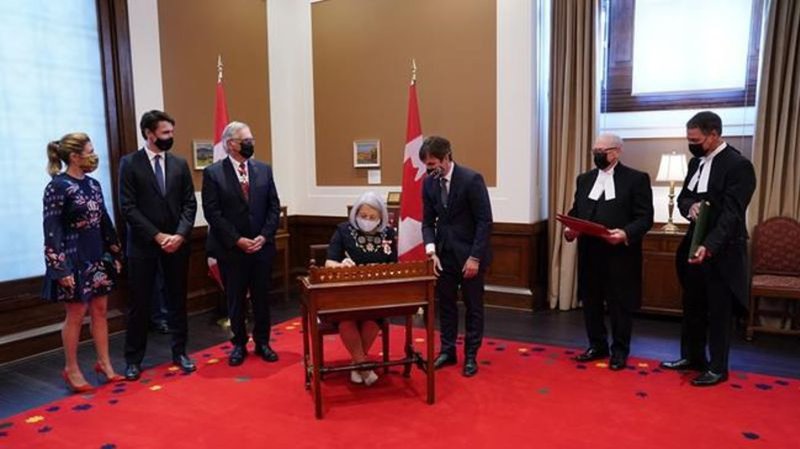
Governor General will likely agree to a Trudeau request to call snap election: expert
OTTAWA — A constitutional law expert says the long-standing tradition of the Governor General acceding to Canadian prime ministers’ requests to dissolve Parliament will practically push newly installed Gov. Gen. Mary Simon to accept a plea from Prime Minister Justin Trudeau to call an election.
NDP Leader Jagmeet Singh has asked Simon to refuse any request from Trudeau to dissolve Parliament and send voters to the ballot box, noting that the fixed-election law states that every general election must be held on the third Monday of October four calendar years after the last one.
Singh says in a letter to Simon that the law allows for an early election if the government has lost the confidence of the House, but the Trudeau government has won every confidence vote it has faced including on the speech from the throne and the budget.
Ottawa University law professor Errol Mendes says the Governor General as a representative of the Queen has in theory the power to refuse a request from Trudeau to dissolve Parliament, but that power has not been used for many decades because Canada has been regarded as an independent country from the United Kingdom.
